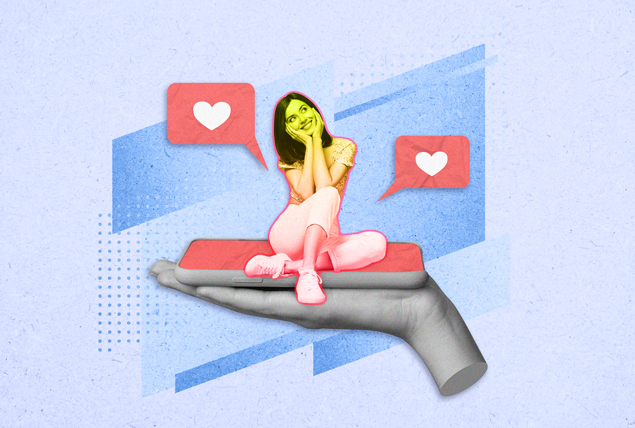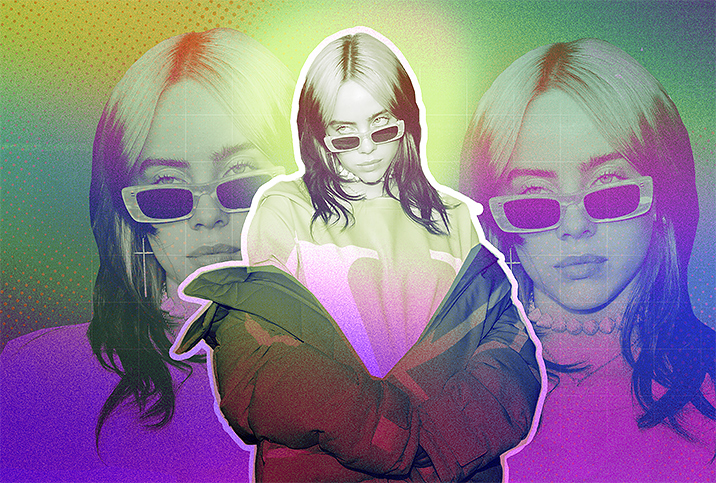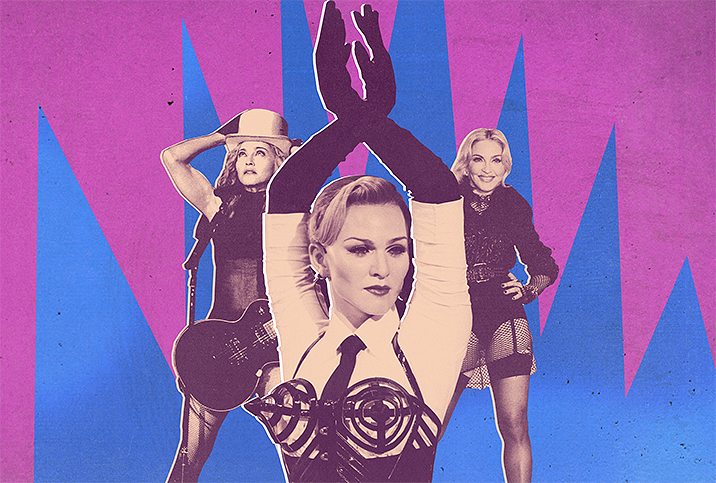Are You In a Parasocial Relationship?

You know their likes and dislikes, personal mantra and pets' names. You've cried over their heartaches and celebrated their happiness. You think about them all the time, but they have no idea who you are.
If this sounds familiar, you may be in a parasocial relationship.
While this sounds like a bad thing—and it can be—there are certain benefits. What is a parasocial relationship? How might it affect you and your relationships in real life? What effects can it have on your mental and physical health?
What is a parasocial relationship?
"A parasocial relationship is a non-reciprocal relationship between a person and someone of status, in which one person invests extensive energy, interest and time into someone who doesn't know they exist," said Kristen Casey, Psy.D., a licensed clinical psychologist and the owner and founder of Evolve Psychological Services in Kansas City, Missouri.
Social scientists Donald Horton and R. Richard Wohl coined the term in a 1956 article published in the journal Psychiatry. The piece described the new kinds of relationships forming between viewers and celebrities on TV and in films. Today, the term refers to relationships with any celebrity, including fictional characters, social media influencers, musicians, livestream creators and podcasters.
There are varying degrees of parasocial relationships, Casey said. On one end of the spectrum, someone might become heavily interested in a celebrity, follow them religiously on social media and believe they know them personally, beyond their public persona.
In more extreme cases, someone might become obsessed, investing copious time and energy into researching the celebrity's personal life, feeling genuine emotions on the celebrity's behalf, or believing they and their famous crush are "meant to be," according to Lillian Morales, L.C.P.C., a counselor with Thriveworks in Baltimore.
Fame has always been alluring. Long before Taylor Swift, Beyonce or the Kardashians, people were entranced by larger-than-life figures such as Esther Jones—the woman who inspired Betty Boop. Go back even further, to the early 1800s, and there was the fame and adoration that surrounded Lord Byron, a poet and leading figure in the Romantic movement. He was also the originator of one of history's worst fad diets.
In the past, people's knowledge of celebrities was largely reserved to news articles and TV appearances. In the age of social media, however, these relationships can feel distinctly intimate.
"For the first time, celebrities not only share significant intimate details about their life, but they also engage directly with their audiences on a personal level," said Jeanette Lorandini, L.C.S.W., the founder and director of Suffolk DBT, with locations around New York.
Experts said this engagement—it can take the form of responding to a fan's comments online, calling out their username in a livestream or replying to their DM—can create the illusion of an actual friendship.
The United States was already experiencing a "loneliness epidemic" before COVID-19 shuttered the world to save lives. But during the early days of the pandemic, when collective feelings of anxiety, despair and isolation were at their peak, finding a sense of connection—doesn't matter how tenuous—became all the more important.
"The pandemic resulted in a significant increase in parasocial relationships due likely to the amount of time people had to spend online and the feelings of loneliness that people wanted to curb during that time," said Kim Chronister, Psy.D., a licensed clinical psychologist in Los Angeles.
In a small 2021 study, researchers examined the impact of social distancing protocols on reciprocal and parasocial relationships. While friendships remained stable, researchers reported, parasocial relationships became a much more significant part of people's lives. It's possible, they theorized, that people's increased dependence on technology to connect with loved ones blurred the lines between one-sided and reciprocal relationships even further.
"If we rely solely on media technologies to stay in touch with real-life friends, the way we process our real-life friends may begin to mimic how we process our parasocial relationships—as both occur over screens," study author Bradley J. Bond, Ph.D., an associate professor at the University of San Diego, told PsyPost.
Bond added that more research is needed.
Are parasocial relationships healthy?
Parasocial relationships are usually harmless and can actually be positive. For instance, a fan of a particular artist may feel a sense of community and camaraderie with fellow fans, according to Lorandini. This may help alleviate loneliness and depression and could provide opportunities for authentic, reciprocal friendships.
Celebrities and fictional characters can also serve as role models and offer support, encouragement and inspiration.
Additionally, research indicates parasocial relationships can boost self-esteem and diminish stigma if a celebrity is discussing a condition or subject that has been historically judged or sidelined, Morales explained. For example, a celebrity discussing their personal battle with a mental or sexual health condition and their experience getting help might make viewers feel less ashamed and more empowered to do the same.
"It can also make a person feel less alone if this celebrity or character is discussing a less common health issue, identity or even world matter and make a person feel more seen," she added.
Signs of an unhealthy parasocial relationship
Despite upsides, Casey said this type of relationship can also be a slippery slope if someone is using it for emotional support or connectivity, or if it interferes with their functioning, career or real-life relationships.
In some cases, Chronister noted, these one-sided connections may facilitate a disconnect from reality or drive people to dangerous behaviors.
"Stalkers are common examples of dangerous parasocial relationships because there is a warped sense of reality about the true nature of the relationship and mutual intimacy," Lorandini said.
Zealous dedication to a celebrity might be symptomatic of an underlying mental illness such as trauma, delusional thinking, obsessive behavior or antisocial tendencies that could benefit from professional treatment, she added.
"Someone involved in a serious parasocial relationship might have a very hard time making genuine connections and withdraw from human relationships," Lorandini said. "When a relationship is one-sided, it can feel safer for someone who struggles to relate to other people or who has been affected by trauma to the extent that they distrust or cannot handle the unpredictability of real people and relational dynamics."
Even more subdued parasocial relationships can have adverse effects, according to Casey. For example, they might create unrealistic expectations for real-life relationships or divert a person's attention.
"The person may expect their partner to have the attributes of a media personality or become upset when their partner doesn't act the same way," she said.
Research suggests comparison is a part of human nature and to a certain degree, can be productive. It can quickly become toxic, however, especially when comparing yourself or your partner to the airbrushed images and carefully curated captions that dominate social media. Such expectations and behaviors are a recipe for disappointment, and they may take a toll on you and your partner—your well-being and relationship.
Moreover, when it comes to matters such as sexual health, blindly following a celebrity's advice without the guidance of a qualified professional could be harmful or even dangerous.
It's not uncommon for influencers to dole out tips and endorsements for everything from libido enhancers to contraceptives, and while some information can be helpful, it isn't always medically sound. For example, check out Yoni supplements or the advice to apply ice to "tighten" your vagina.
The bottom line
Parasocial relationships can prove harmful or helpful, depending on how far they go. If you're engrossed in a celebrity's personal life but recognize they likely wouldn't join you for brunch, you're probably fine. But if you notice you're spending excessive time and energy fixated on a media personality, to the extent it's affecting your job, school or relationships, it might be time to take a step back.
"Not all parasocial relationships are negative or unhealthy, so identifying a healthy balance between living your life and engaging with the media personality may be helpful," Casey said. "You might also reach out for help by calling a loved one or therapist to walk through the ways to engage in real-life relationships."


















